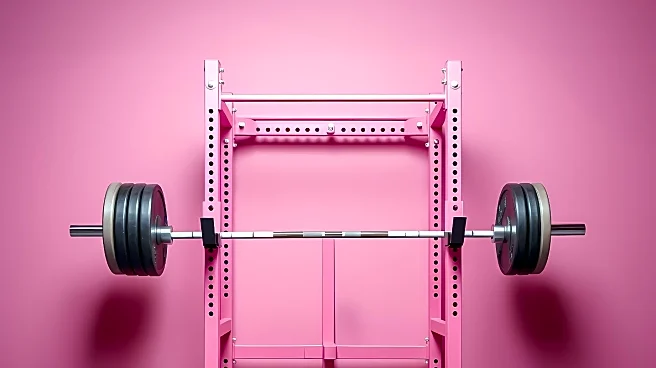What's Happening?
LaShae Rolle, a PhD student at the University of Miami, has incorporated her personal experience with breast cancer into her academic research. Diagnosed with HR+, HER2- breast cancer and invasive ductal carcinoma at the age of 26, Rolle, who was already
a competitive powerlifter, decided to use her strength training as part of her treatment and research. Working with the Sylvester Comprehensive Cancer Center, a strength training program was developed to align with her chemotherapy cycles. This program included high-intensity workouts before infusions, moderate exercises mid-cycle, and recovery days post-infusion. Rolle's commitment to documenting her journey has provided valuable insights into the role of exercise in cancer treatment.
Why It's Important?
Rolle's research highlights the potential benefits of integrating exercise into cancer treatment regimens. Her work could influence future cancer care protocols by demonstrating how physical activity can be safely incorporated into treatment plans, potentially improving patient outcomes. This approach may offer a new avenue for cancer patients to maintain physical strength and mental resilience during treatment. Additionally, Rolle's story serves as an inspiration, showing how personal challenges can be transformed into impactful research that benefits the broader community.
What's Next?
Rolle is nearing the completion of her PhD and plans to continue her research in cancer prevention, focusing on risk factors such as diet and exercise. Her ongoing work could lead to further studies that explore the relationship between physical activity and cancer treatment efficacy. As she transitions into a professional research role, her findings may contribute to developing new guidelines for integrating lifestyle modifications into cancer care.
Beyond the Headlines
Rolle's journey underscores the importance of patient-centered research, where personal experiences can drive scientific inquiry and innovation. Her case also highlights the potential for social media to serve as a platform for support and motivation, as Rolle's posts have inspired others facing similar challenges. This aspect of her story points to the broader cultural shift towards using digital platforms for health advocacy and community building.
















